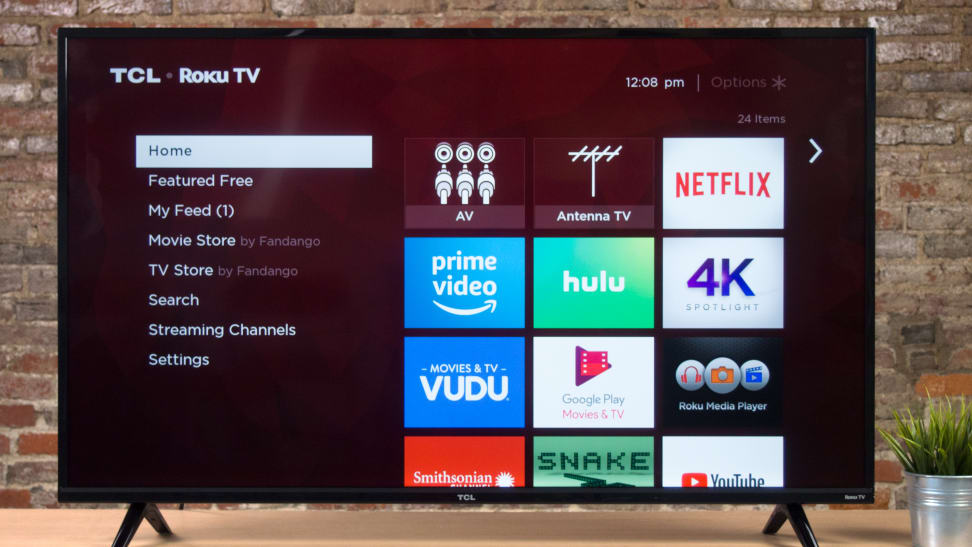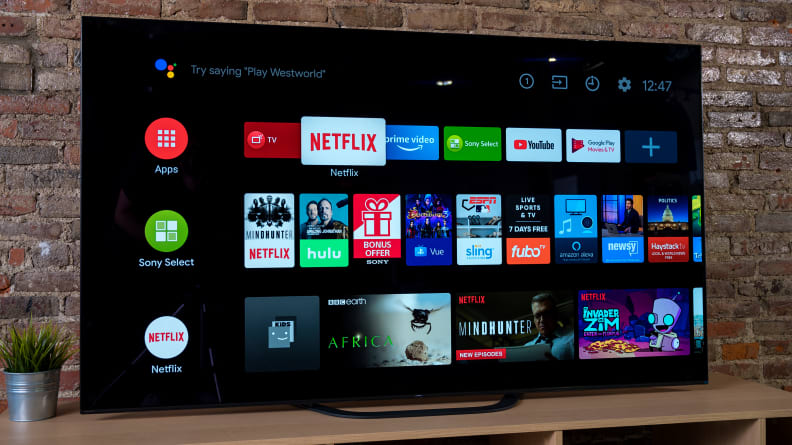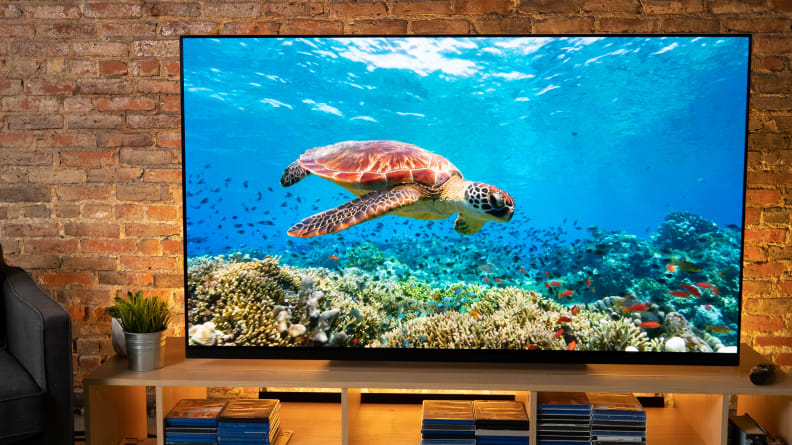What is a smart TV and do you need one?
You basically have to buy a smart TV these days—here's the scoop
 Credit:
Reviewed / Michael Desjardin
Credit:
Reviewed / Michael Desjardin
Products are chosen independently by our editors. Purchases made through our links may earn us a commission.
Ten years ago, a smart TV was something you paid extra for. The first of them were a crapshoot where features were concerned, stuffed with useless stuff like calendars, advertisements, and games I wouldn't wish on my worst enemy.
In 2019, smart TVs are way, way better. And that's great news, because when it comes to buying a new TV, you're pretty much going to have to buy a "smart" one. Unless you're buying the cheapest off-brand thing you can find, any worthwhile TVs—even the budget options—are going to come equipped with smart features.
Just what does that mean in 2019? Here's what you need to know.
What is a "Smart" TV?
When you're buying a new TV, it might be called a few different things: a smart TV, a Roku TV, an Android TV, and so on. While the "skin" or design/UI will vary from brand to brand, the basic idea is the same: the TV connects to the internet, via either your home WiFi, or running an ethernet cable.
With the TV online, you'll be able to do a bunch of things, but the primary function of most smart TVs is to give you access to apps like Netflix, Hulu, Amazon, and so on. An Android TV will give you a version of the Google Play store that's full of made-for-TV apps, while a Roku TV gives you a baked-in version of the Roku streaming device.

One example of a smart TV, an Android TV gives you access to the Google Play Store.
Though LG, Samsung, and Vizio use their own smart platform and apps, other makers may use Android TV (such as Sony TVs), Amazon's Fire TV platform, and Roku. You can also just attach any streaming device—like a Roku, Apple TV, etc.—to any TV you buy and skip the built-in platform altogether.
While the specifics of what you can do vary from platform to platform, and in some cases, certain apps—like Spotify, or HBO Now—might not be available on the platform of the TV you're buying, so be sure to do your research. However, the real advantage of smart TVs comes from their built-in ability to stream 4K and HDR content.
What about 4K/HDR content?
One of the biggest advantages of buying a smart TV only matters if the TV you're buying is a 4K or HDR-compatible model, which most of them are these days. While you might already have a device for streaming apps, a smart 4K or HDR TV will be able to natively stream 4K and HDR content, something your favorite media streaming device may not be able to do.
For example, if you use an Apple TV (instead of the Apple TV 4K), you won't be able to stream 4K content. Likewise, more basic streamers like early Chromecasts, the Fire TV Stick, and the Roku Streaming Stick are not able to stream 4K content.

Any 4K or 4K/HDR TV—even the most affordable ones—that has smart features will be able to natively stream 4K and/or HDR content.
If you buy a 4K/HDR TV—even a very affordable one like the TCL 4 Series (2019)—it will be able to stream 4K and HDR content where available on apps like Netflix, Amazon Video, and so on. The only thing to keep in mind is that you'll need a fairly robust WiFi speed (around 20 Mbps) to stream 4K content consistently.
Take a look at all the 4K content that's available in 2019.
Other smart TV features
While streaming apps (and specifically 4K/HDR content) is probably the biggest boon of smart TVs in general, many of them do a lot more. Depending on the manufacturer, you can expect to be able to do things like use Alexa and Google Home voice commands, use a web browser, and even control other smart home devices.
Smart TV games have gotten a lot better in recent years too, though they've still got nothing on a traditional video game console. For most people, however, we expect the draw of a smart TV to be its apps, and the ability to natively stream 4K and HDR.
